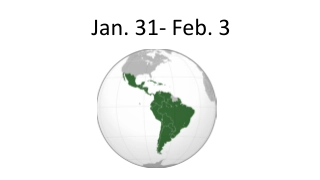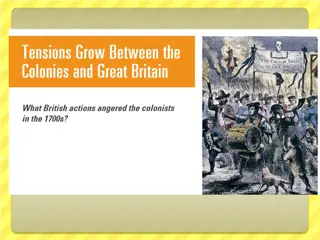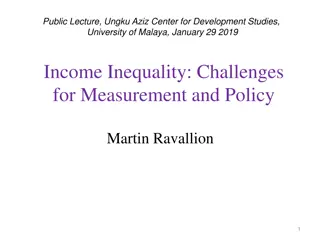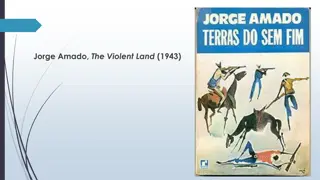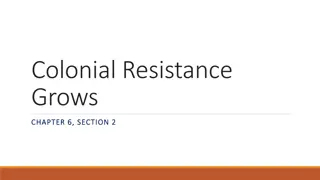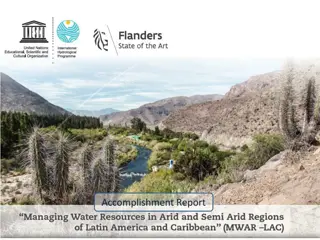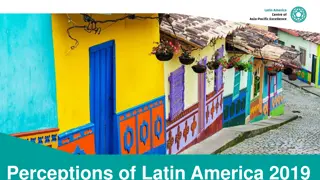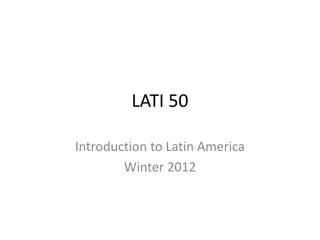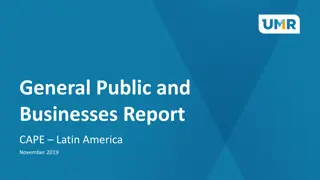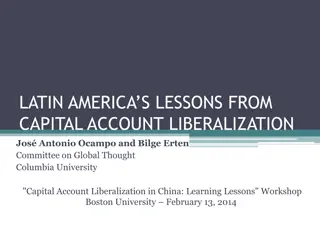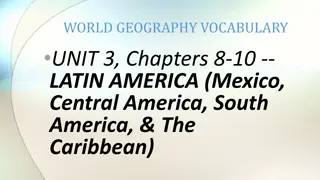Inequality and Resistance in Colonial Latin America
Inequality in social, racial, and economic aspects stems from unequal colonial encounters and labor demands of Spanish and Portuguese. The existence of dense populations in mines shaped centers of empire, while the arrival of enslaved Africans reinforced hierarchies based on race, class, and gender. Economic disparities persisted post-colonial rule, exacerbated by land inequality and rapid urbanization.
Download Presentation

Please find below an Image/Link to download the presentation.
The content on the website is provided AS IS for your information and personal use only. It may not be sold, licensed, or shared on other websites without obtaining consent from the author.If you encounter any issues during the download, it is possible that the publisher has removed the file from their server.
You are allowed to download the files provided on this website for personal or commercial use, subject to the condition that they are used lawfully. All files are the property of their respective owners.
The content on the website is provided AS IS for your information and personal use only. It may not be sold, licensed, or shared on other websites without obtaining consent from the author.
E N D
Presentation Transcript
Inequality Inequality Social; racial; economic Stems in first instance from violently unequal colonial encounters And from labour demands of Spanish and Portuguese Existence of dense populations for work in mines helps determine which areas become centres of empire, esp in Spanish case Other areas: no native labour supply Arrival of enslaved Africans in huge numbers - early C16 to late C19 Polities/ societies rested on complex systems of hierarchy; combined notions of religious purity with elements of what we d now call race, class, gender Important evolution of social hierarchies, and resistance/ subversion to them; but they nonetheless endure long after colonial rule; legacy felt today
More inequality: economic components: More inequality: economic components: Profoundly unequal economic situation for different parts of society, during colonial rule; worsens if anything after independence Land inequality: massive land grants to privileged Europeans is tool of empire- building; phenomenon of hacienda/ fazenda is about social and political inequality as well as economic; Late C19: Lat Am economies and lands drawn on huge scale into Atlantic economy/ industrialising north Atlantic; process compounds economic inequality Periods of very fast economic growth in C20 generally widen economic inequality Lat Am countries (with notable exceptions) score really highly on the Gini coefficient (measure of economic inequality) Rapid, uncontrolled urbanisation is part of this process; urban inequality, shantytowns (favelas) very general Latin American phenomenon
Morumbi neighbourhood, So Paulo, with Para so favela next door
Garapa Garapa, , dir. Jose Padilha Padilha, 2009 , 2009 A documentary film about people living with chronic hunger in Brazil s arid north- eastern region Garapa is a sugar solution given by parents to their children to assuage their hunger when they don t have enough food to eat Brazil is currently the world s ninth richest country dir. Jose
Resistance and politics from below Resistance and politics from below Indigenous and enslaved rebellions and resistance from earliest colonial times C19 popular democracy : non-elite, enslaved, indigenous people adopt notions of liberalism and anticolonial struggle to their own ends Mexico 1910: world s first social revolution Mid-twentieth century revolutions (Cuba is only the most famous ) Late-twentieth-century social movements Zapatistas, land reform/ peasant leagues, racial equality movements, women s movements
Ideas about race, and race mixture Ideas about race, and race mixture Particular mix of different peoples is synonymous with region Nationbuilding founded on notions about race mixture - mesti agem, mestizaje Mixture is part of reproductive history under conditions of extreme inequality, conquest, slavery, rape Traditionally, history told as a meeting of three groups : Europeans, indigenous peoples, Africans In fact, all of them (especially Africans and indigenous Americas) made up of hundreds of entirely separate ethnic groups; indigenous people lumped together as Indians after 1492 (misnomer) African history of Americas often marginalised
Africans in the Americas Africans in the Americas More Africans went to the Americas before 1800 than did Europeans and more enslaved Africans went to Latin America than any other part of the Americas. Africans and their descendants were not at synonymous with slaves. They arrived as sailors with the earliest European voyages; In many societies of Latin America, for much of the colonial period, there were more free than enslaved people of African descent Nonetheless, African slavery played a huge role in shaping the region, politically, socially, economically. See Henry Louis Gates, Jr, Black in Latin America (book and PBS TV series, some episodes and interviews on YouTube) See George Reid Andrews, Afro-Latin America: Black Lives, 1600-2000 (at library)


